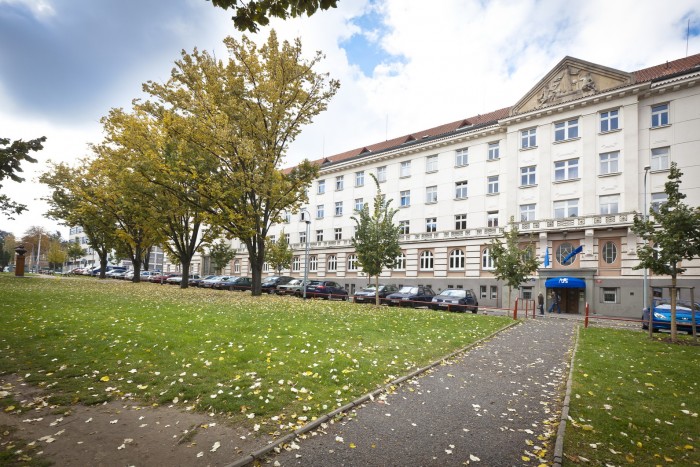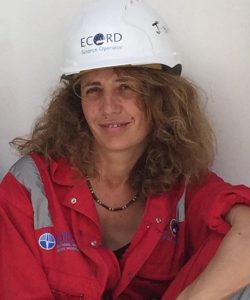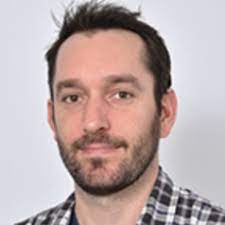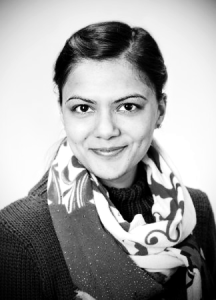OFF-SOURCE will organise high-level Training Schools on state-of-the-art tools:
- Marine geophysics (acquisition, processing, and interpretation of reflection seismics and electromagnetics; multi-physics approaches)
- Numerical modelling (groundwater flow, solute transport, heat transport, finite element modelling, stratigraphic and geostatistical modelling)
- Borehole sampling and logging (packer and pumping tests, dipole aquifer testing, dilution tests, distributed sensing) and geochemical analyses (sampling, measurement and interpretation of chemical tracers)
Upcoming training schools
Numerical modelling and characterization of Offshore Freshened Groundwater (OFG) systems – Part 2
Dates: October 3rd – 4th 2024
Time: 9:00 am – 4:00 pm
Location: Utrecht University – Vening Meinesz building A, Princetonlaan 8a, 3584 CB Utrecht, The Netherlands

Instructors: Daniel Zamrsky

Description
Large scale groundwater models have become a widely used to simulate groundwater flow and salinity in coastal regions. These models are often also used to study potential presence of Offshore Freshened Groundwater (OFG) in the continental shelf domains. Recent developments in numerical modelling tools (i.e. parallel imod-wq code) and Python libraries provides a great opportunity to build large scale regional groundwater models (often more than 100 000km2). In this two day workshop we will focus on implementing the imod-wq + Python workflow for regional case studies. We will go over a basic setup of the model using Python tools, discussing boundary conditions, grid and
time discretization and much more. The main goal is for the participants to gain practical and technical knowledge on large scale groundwater modelling using imod-wq and Python as well as make progress in their own groundwater
modelling projects and case studies.
Applicants are encouraged to show their motivation for joining the workshop and provide a description and ideas for their regional case study. Preferably a geological model will be ready at the start of the workshop and can be then used as main input for building the groundwater model. Proficiency with Python coding isn’t required but it will be helpful in order to make as much progress during the workshop. Therefore, participants are encouraged to follow some basic python tutorials (if possible), prior to the workshop.
The main objectives are summarised as follows:
- Create a workflow to build groundwater models using imod-wq and Python that can be built upon in the future and applied in future projects
- Exchange knowledge, tips and struggles in geological and groundwater modelling
- Focus on practical model implementation and understand boundary conditions, effects of grid discretization and geological input
- Stimulate potential scientific collaboration
Course Outline
Day 0: Wednesday 2 October
Participants arrive to Utrecht, potential ice-breaker dinner in the city
Day 1: Thursday 3 October 2024
Session 1: Workshop introduction, case study presentations, creating working groups with similar goals and model inputs, introduction into imod-wq and Python tools part 1
Session 2: Introduction into imod-wq and Python tools part 2, brainstorm on and implementation of Python tools customization for working groups, working on individual case studies
Evening: dinner and drinks in the city
Day 2: Friday 4 October
Session 1: Continue work on individual case studies
Session 2: Wrap up case study work, discussion about future collaborations and workshop topics, workshop wrap up
Register here (deadline 31 July)
Past training schools
Training School – Borehole sampling and geochemistry
Dates: June 4 th – 6 th 2024
Time: 9:00 am – 17:00 pm
Location: Prague – Masarykova Kolej – Thákurova 1, 160 41 Praha 6, Czechia

Instructors:
Johanna Lofi Philippe Pézard Gérard Lods Erwan Le Ber



Description:
The main objectives are summarised as follows:
- Bring all participants to a common understanding of borehole data applied to OFG
- Introduce basic borehole geophysical and imaging tools and their applications
- Introduce geochemical analyses sampling and interpretation principles
- Develop a network of leading experts in OFG research
Course Outline
Day 1 (4 June):
09:00 – 09:30: Welcome (Daniel Petrash + Johanna Lofi)
09:30 – 12:00: Introduction to downhole logging (Philippe Pézard)
12:00 – 14:00: Lunch break
14:00 – 17:00: Introduction to downhole logging (Philippe Pézard)
Day 2 (5 June):
09:00 – 12:00: Introduction to IODP /MSP/ New England (Erwan Le Ber); Case study from New Jersey (Johanna Lofi)
12:00 – 14:00: Lunch break
14:00 – 17:00: Initiation to Wellcad (Erwan Le Ber & Johanna Lofi)
Day 3 (6 June):
09:00 – 12:00: Introduction to borehole hydrology (Gérard Lods)
All the training material of this training school can be found in this drive folder.
________________________________________________________________________________
Training School – Numerical modelling and characterization of OFG systems
Dates: June 7 th – 9 th 2023
Time: 9:00 am – 4:00 pm
Location: Utrecht University – Vening Meinesz building A, Princetonlaan 8a, 3584 CB Utrecht, The Netherlands

Instructors: Shubhangi Gupta, Ariel Thomas, Daniel Zamrsky



Description
Over the last few years there has been a notable increase in research activities related to OFG systems, which has led to the development of a number of multi-physics analysis and interpretation approaches. Integrating and standardising these methods is key to developing a common conceptual framework for characterising OFG systems. This 3-day training school aims to provide high quality and interdisciplinary training in OFG investigation and research management for PhD students, Young Researchers and Innovators (YRIs) and practitioners. Participants will be given an overview of the state-of-the-art in OFG systems research and specific challenges to characterization. The primary technical focus will be the integrated numerical modelling of OFG systems over geological time scales to assess their evolution and better understand present-day distributions. The course will also introduce the fundamental principles of modelling, geostatistical methods for reservoir characterization and groundwater modelling including variable density transport. The format will be highly interactive, with real data demonstrations usings tools such as Petrel, Geomodeller, Jupyter Labs, FloPy and imod-WQ. Knowledge of these tools would be advantageous but not mandatory. Participants will also be given the opportunity to work together with trainers to apply these methods in their own OFG projects.
The main objectives are summarised as follows:
- Bring all participants to a common understanding of the fundamentals of OFG systems
- Introduce the governing physical principles
- Define the key metrics for OFG characterization
- A practical introduction to state-of-the-art tools for OFG system characterization including for geostatistical methods and groundwater modelling.
- Develop a network of leading experts in OFG research
Course Outline
Day 1
Session 1: Overview of OFG Characterisation
Session 2: Fundamentals of modelling
Day 2
Session 1: Geostatistical methods using Petrel
Session 2: Building large scale groundwater models (I)
Day 3
Session 1: Building large scale groundwater models (II)
Session 2: Interpretation/Live data workshop
All the training material of this training school can be found in this drive folder.
The Training Schools will be complemented by activities organised by the COST Academy, which target young researchers from ITCs. All these activities will provide PhD students, YRIs, practitioners and managers with a unique opportunity to access cutting-edge analytical methods and knowledge in a rapidly expanding research field, and to obtain a new set of scientific and analytical skills that will enrich their research potential and facilitate their participation in new collaborative research projects.
These training opportunities will also enable stakeholders to acquire new, specific, science-based knowledge that can be applied to practical management issues in various contexts, to extend their professional skills and capabilities, and to obtain international visibility at the European level.